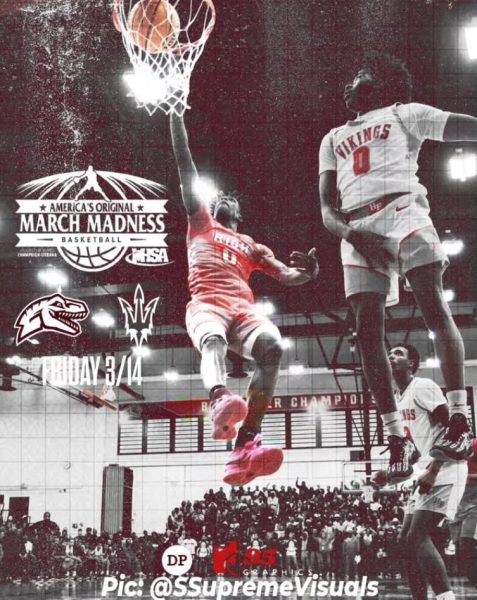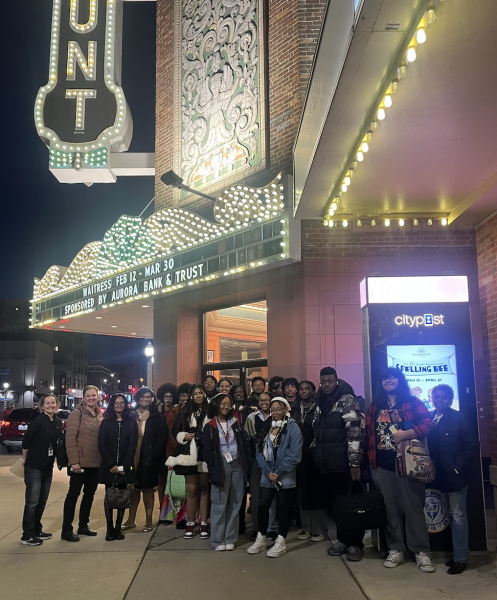Rich Township Students and the Effects of Online School on Learning and Enrichment
School shutdowns during the pandemic meant huge changes in the way students approached school and extracurriculars. With classes and clubs going online and many students facing an unfamiliar learning environment, there comes the question of how online school during the pandemic may have affected students’ engagement in activities both in and outside of the classroom.
In speaking with a handful of students at Rich Township High School, a great deal of feedback was collected. Student participants in an online survey were asked to answer questions about their academic performance and overall means to participate in clubs, sports, and other activities outside of school.
Academic Performance
When asked about their ability to maintain their grades while in online school, most reported either a negative effect or no effect at all. Common explanations involved the need for the structure and in-person assistance provided by working in a school building and the lack of motivation to study and participate in activities while online.
One student mentioned a more external factor to his lack of motivation, stating, “It feels like something clicked off in my brain—the capacity to care as much about my grades and work. This was probably because of my shift in perspective over the beginning of quarantine about post-secondary education, following the decline of the job market.”
Not a single student reported a positive effect on their ability to absorb information when they attended classes online, and more than half experienced a negative effect.
One student stated “Some hands-on experiences done in-person help students absorb more info; students have to just pay attention and memorize text when remote.”
Another said “I believe that when I was actually paying attention, I was still retaining information as I would have in person. The problem was, it was rare that my attention was held.”
When it came to the accommodations provided by teachers and other staff while in online school, there were mixed responses.
One student expressed, “There are those teachers who are there for you and know what you are going through but there are others who don’t and makes it difficult for you to understand and work on things. There are times I tried asking my teacher for help and if they could meet me halfway but they won’t even try something new or helpful for their students.”
Another student provided a different view, saying “I personally feel like teachers and other staff members were even more accommodating during online instruction. The virtual transition was difficult on everyone, especially for Juniors (SAT, ACT, College-Prep), and I think my teachers understood that. If I ever felt overwhelmed, all I had to do was reach out if I needed help, clarification, or a deadline extension.”
Overall, online learning appeared to mean a more difficult experience with academics for each student, whether this came in the form of lack of motivation, lessened retention of information, or some other factor. It is no surprise when questioned on the possibility of taking online classes again in the future, each of the participants either expressed a preference for in-person learning or went against the idea altogether.
Involvement in Outside Activities
Experiences with clubs and sports were varied, although most reported a negative effect on the ability to participate in these activities, although this is likely due to the presence of differences in the way extracurriculars could function during the pandemic.
According to Eyitayo Awe, a fellow reporter at The Uproar, “In clubs like Newspaper & African American Culture Club, being strictly online does not really impede your ability to participate, but for clubs like Key Club & Student Council, it’s a different story. It’s much harder to organize and host community events virtually (Attendance, Interest, Safety, etc.) Many people simply didn’t have the motivation to attend an event that we organized and that made it very hard to participate.”
The change in interactions between teammates and fellow club members appeared to affect many activities as well, especially those that combined students from each of the former District 227 schools. Amari Harris, a senior at the Fine Arts Campus, stated that “[Online school] doesn’t give me the chance to really get to know everyone in that sport/activity that I am in. I’m the type of person who likes talking to people and finding out what’s been going on but because of online school I don’t get the chance to know them but a name on a screen. It was really hard trying to come together as one school for basketball because we didn’t know each other and we started to just hang with our own schools. I didn’t like that because it affected our ability to play with one another.”
On the other hand, many students were able to pick up new hobbies or develop existing skills outside of school during the pandemic, including sports, music, poetry, knitting, and baking.
Students undoubtedly faced a variety of challenges during the pandemic when it came to online school. While the time and convenience provided by virtual meetings and having educational resources available at our fingertips allowed for numerous advantages, the lack of an in-person environment led to a draining, demotivating, and isolating experience for many. It’s clear that although the pandemic served as a catalyst for the further development of remote learning, face-to-face interactions and in-person work remain integral parts of education for both current and future generations of students.







Amari Harris • Nov 14, 2021 at 12:20 am
Amazing article!!! I can’t wait to read more of your articles!